Negative Space: The Dream of Poor Bazin
- Release: The Dream of Poor Bazin
-
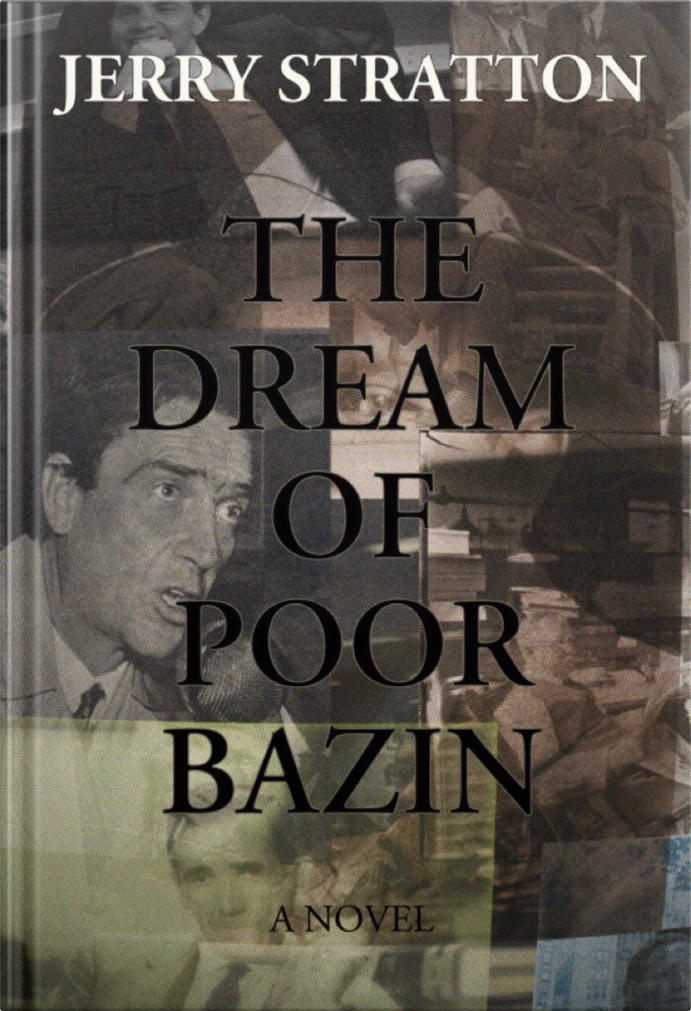 A great journalistic adventure in the style of Dumas or Waugh, four hard-drinking reporters taking on the corruption, toadying, and even murder in America’s beltway.
A great journalistic adventure in the style of Dumas or Waugh, four hard-drinking reporters taking on the corruption, toadying, and even murder in America’s beltway.
- Intellectuals and Society
-
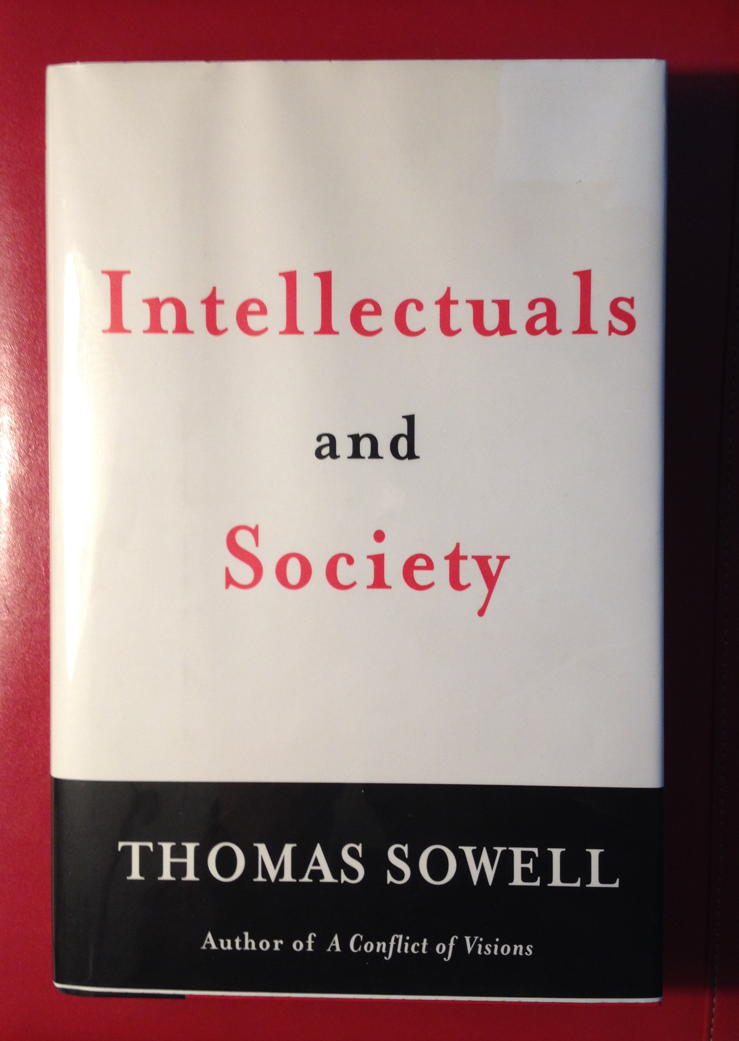 Thomas Sowell details the verbal virtuosity by which the left tries to avoid empirical evidence.
Thomas Sowell details the verbal virtuosity by which the left tries to avoid empirical evidence.
- Scoop
-
 In 1935, Evelyn Waugh traveled to Abyssinia to cover the Second Italo-Abyssinian War for the Daily Mail. He found it absurd enough, up to a point, to be the basis for a satire and combined some of his colleagues into William Boot of the Beast.
In 1935, Evelyn Waugh traveled to Abyssinia to cover the Second Italo-Abyssinian War for the Daily Mail. He found it absurd enough, up to a point, to be the basis for a satire and combined some of his colleagues into William Boot of the Beast.
- The First Casualty
-
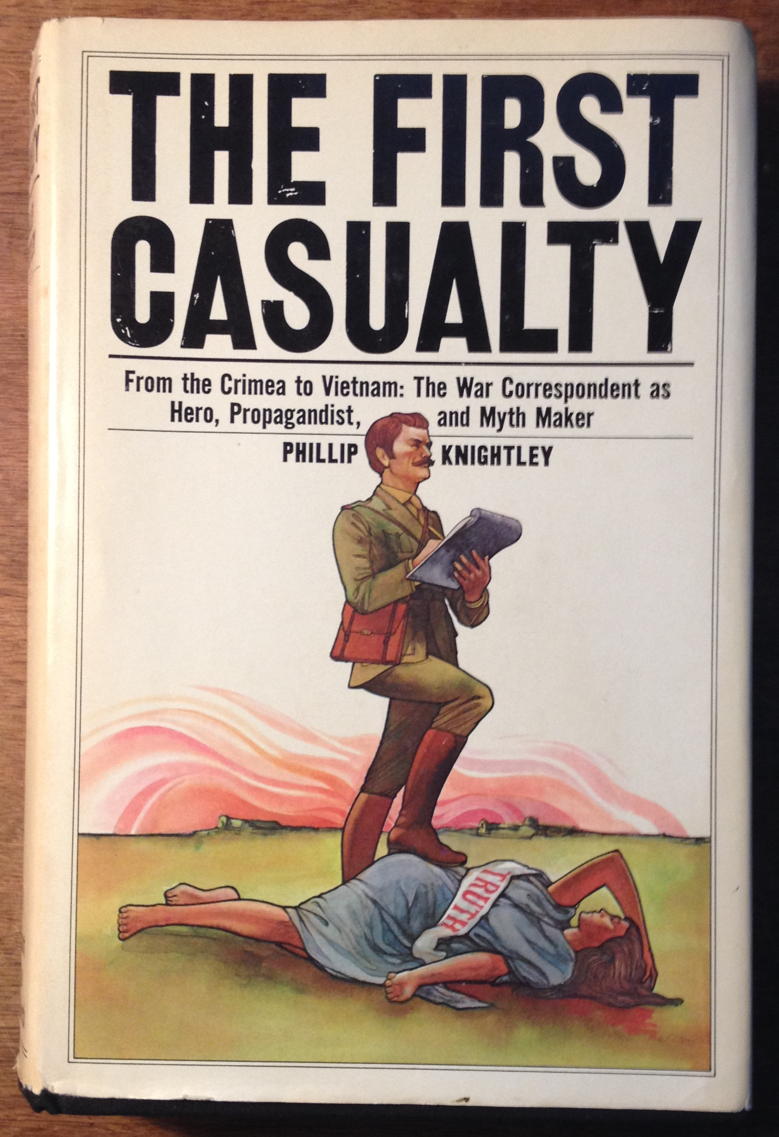 This book is a great collection of war reporting anecdotes from the Crimean War up to Vietnam. It also attempts to be an analysis, and pretty much fails to not only come to any conclusion, but to decide what its goals ought to be.
This book is a great collection of war reporting anecdotes from the Crimean War up to Vietnam. It also attempts to be an analysis, and pretty much fails to not only come to any conclusion, but to decide what its goals ought to be.
- Echo House
-
 Ward Just’s story of three generations of Washington power brokers unknown by pretty much everyone outside of DC.
Ward Just’s story of three generations of Washington power brokers unknown by pretty much everyone outside of DC.
- Advise & Consent
-
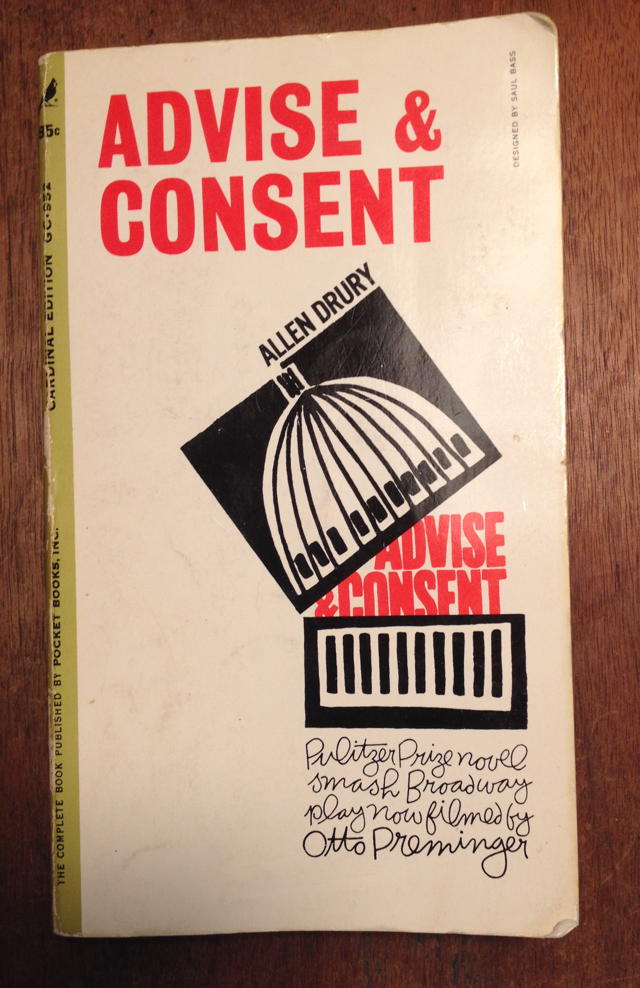 This Senatorial procedural could be straight from Dumas, and the themes hidden in the action are timeless.
This Senatorial procedural could be straight from Dumas, and the themes hidden in the action are timeless.
- The Congressman Who Loved Flaubert
-
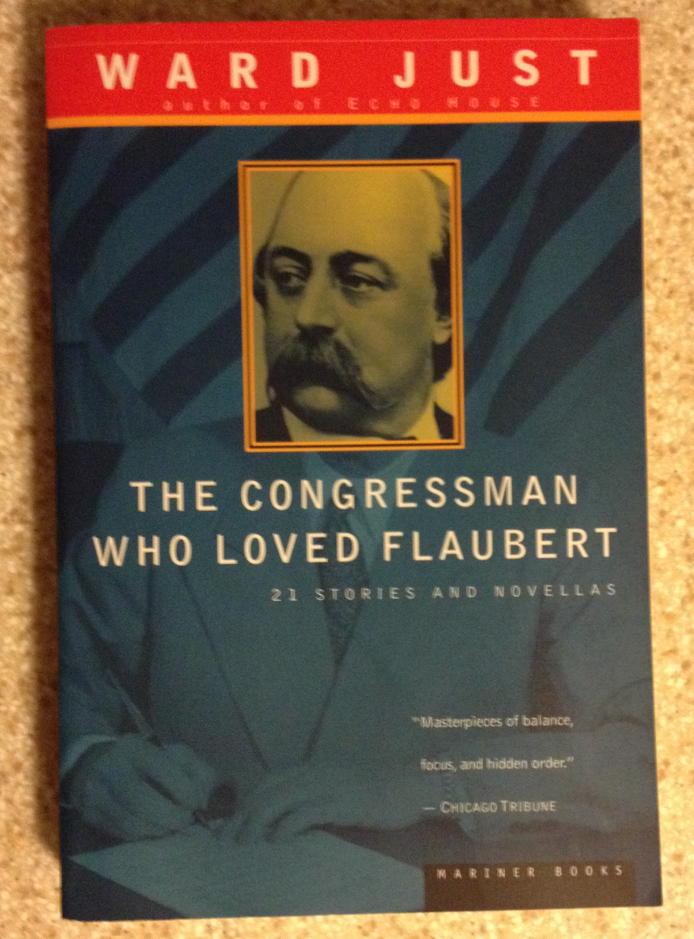 Sad, autumnal reminiscences of power.
Sad, autumnal reminiscences of power.
- For the Love of Mike: More of the Best of Mike Royko
-
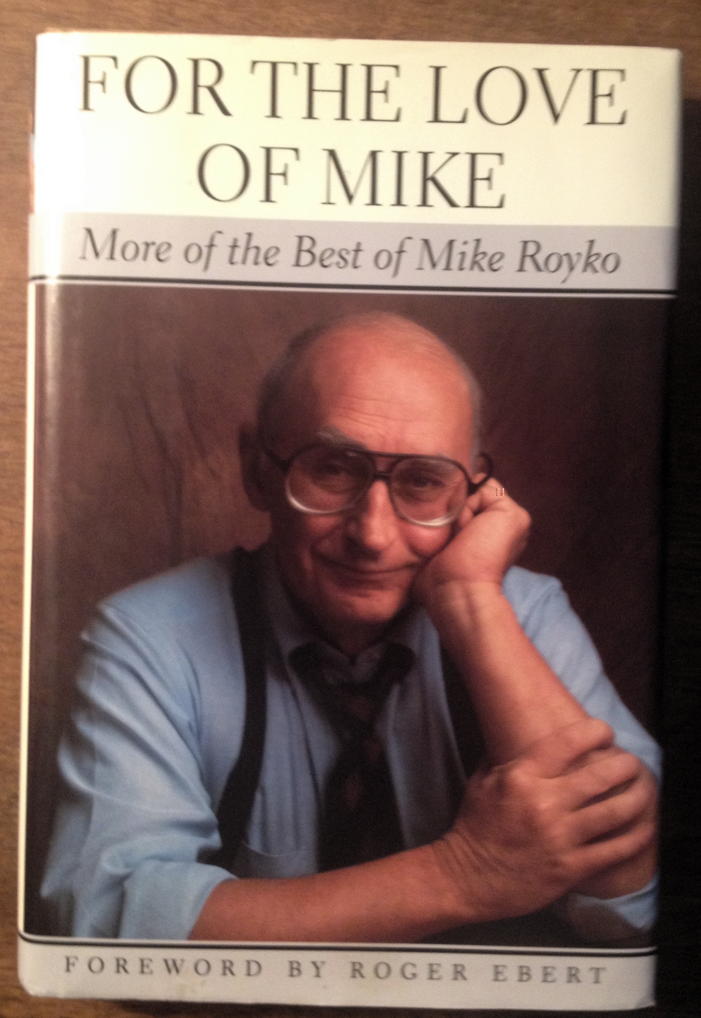 This collection of Royko columns is basically the leftovers from the previous collection, from the sixties on up, and worth getting if you’re a Royko fan.
This collection of Royko columns is basically the leftovers from the previous collection, from the sixties on up, and worth getting if you’re a Royko fan.
- Eugenics and Other Evils
-
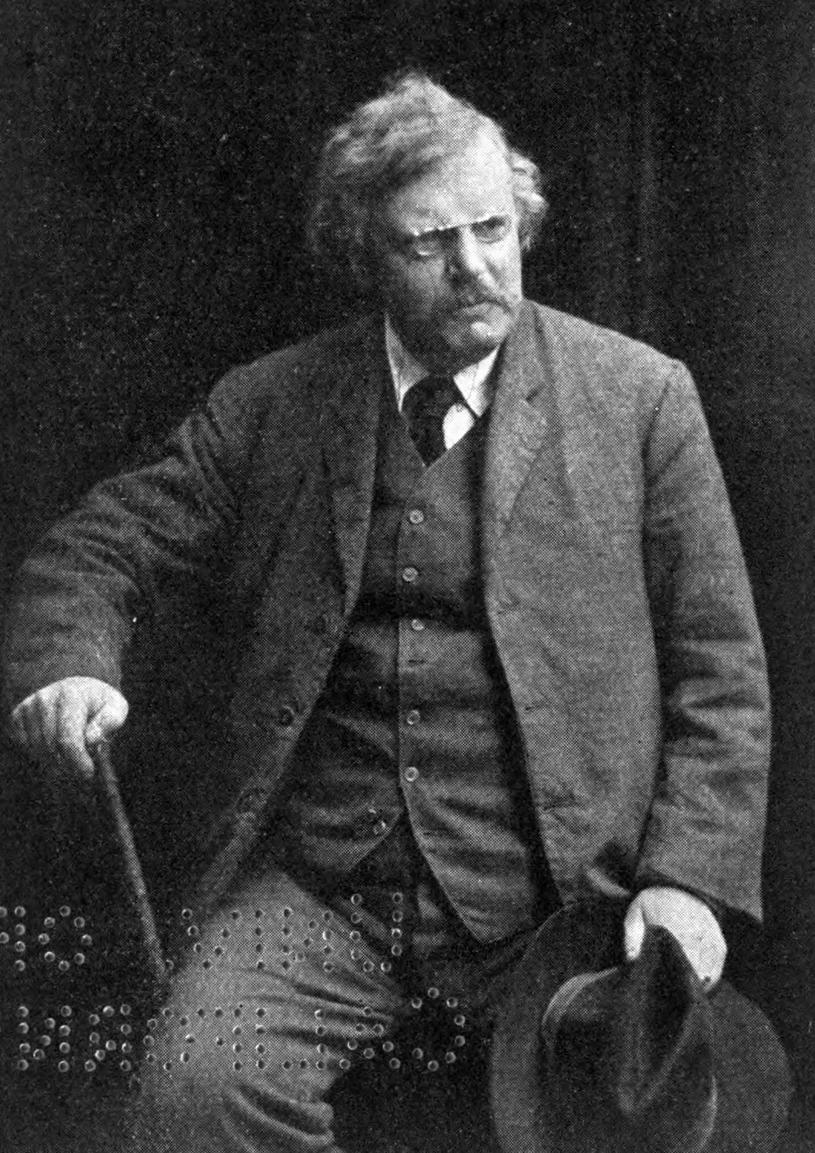 What’s old is new again: unwilling to learn the lessons of the past, those who wish to rule are returning to socialism and cronyism as the only two solutions for all the problems government creates. That is, more government to fix bad government.
What’s old is new again: unwilling to learn the lessons of the past, those who wish to rule are returning to socialism and cronyism as the only two solutions for all the problems government creates. That is, more government to fix bad government.
- The Case for Democracy
-
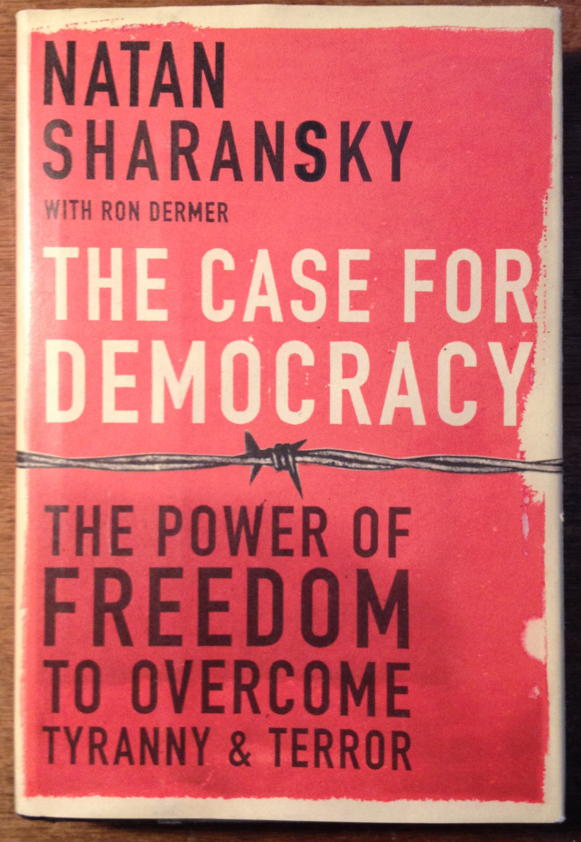 When did America forget that it’s America?
When did America forget that it’s America?
- Call Northside 777
-
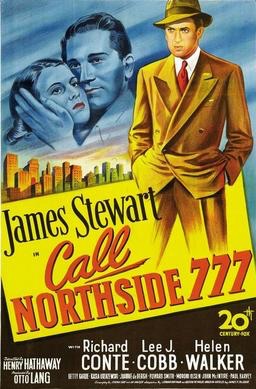 A journalism noir starring Jimmy Stewart as the crusading reporter who frees an innocemnt man while arguing with his editor, smoking, drinking, and walking the streets of Chicago.
A journalism noir starring Jimmy Stewart as the crusading reporter who frees an innocemnt man while arguing with his editor, smoking, drinking, and walking the streets of Chicago.
- The Best of Mike Royko: One More Time
-
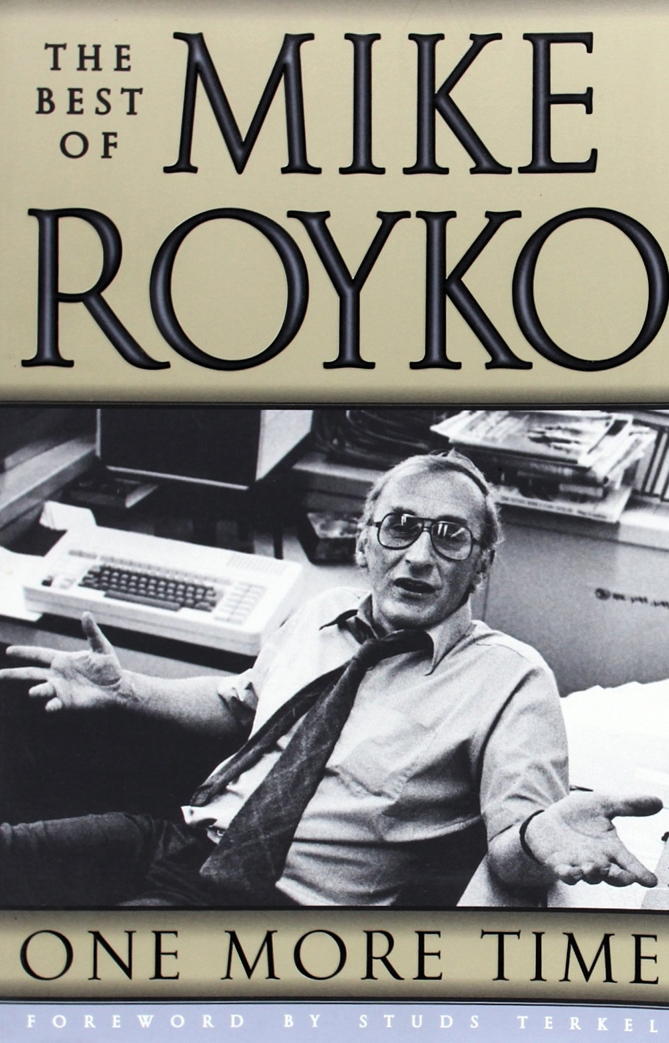 If you’re looking for a grand overview of Mike Royko’s essays, this is a great place to start. It includes his very first essay from September 6, 1963, and provides some of his best works from the sixties, seventies, eighties, and nineties, ending with his very last column from March 21, 1997, which was, fittingly, about both the Cubs and Sam Sianis of the Billy Goat Tavern.
If you’re looking for a grand overview of Mike Royko’s essays, this is a great place to start. It includes his very first essay from September 6, 1963, and provides some of his best works from the sixties, seventies, eighties, and nineties, ending with his very last column from March 21, 1997, which was, fittingly, about both the Cubs and Sam Sianis of the Billy Goat Tavern.
- The Tyranny of Clichés
-
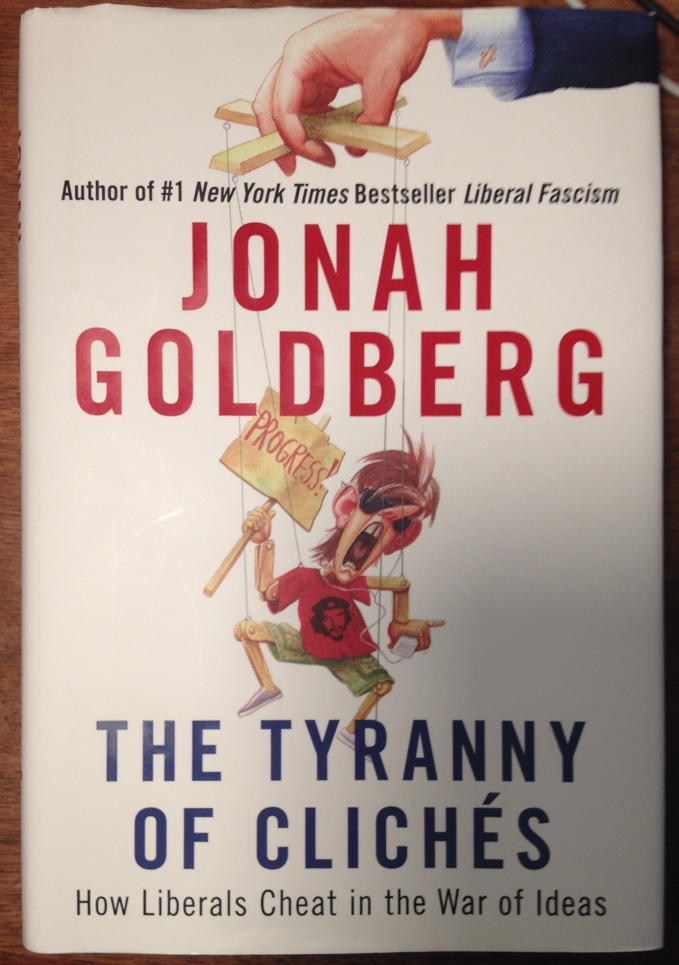 Jonah Goldberg takes down political clichés, such as “violence never solves anything” and “I don’t believe in labels”.
Jonah Goldberg takes down political clichés, such as “violence never solves anything” and “I don’t believe in labels”.
- All the President’s Men
-
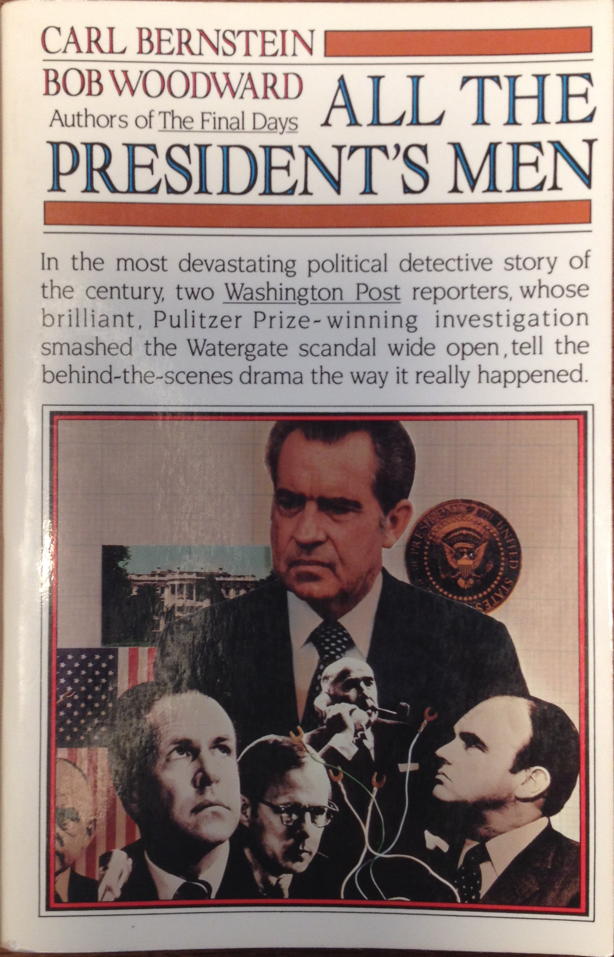 Supposedly written because Robert Redford wanted to base a movie on the book, this is a great memoir of two journalists wondering what the hell was up after a failed burglary on an office in the Watergate Building.
Supposedly written because Robert Redford wanted to base a movie on the book, this is a great memoir of two journalists wondering what the hell was up after a failed burglary on an office in the Watergate Building.
- The definitional war on satire
-
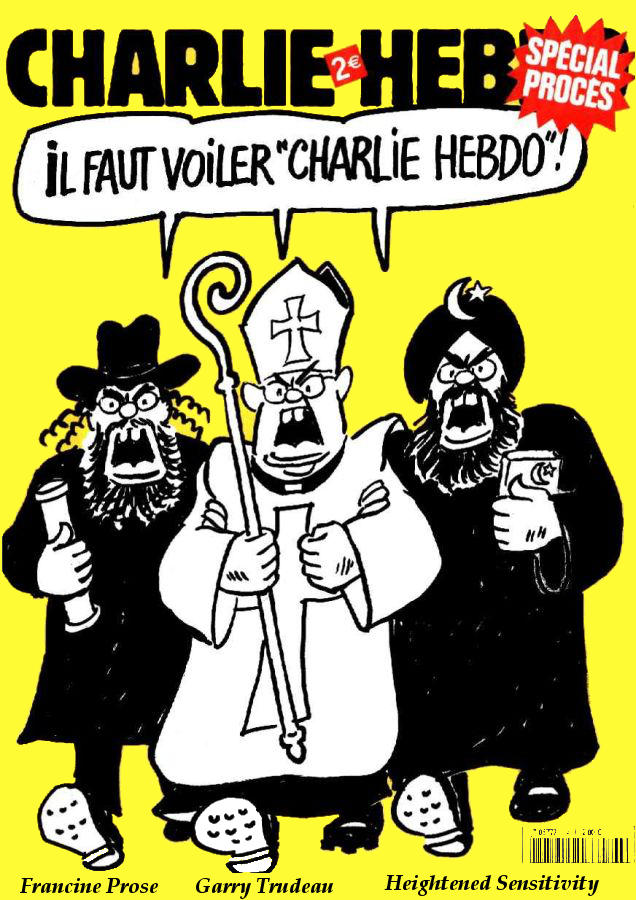 What is satire if it isn’t about current, hotly-debated events and puncturing overblown narratives?
What is satire if it isn’t about current, hotly-debated events and puncturing overblown narratives?
- Dr. Kookie, You’re Right!
-
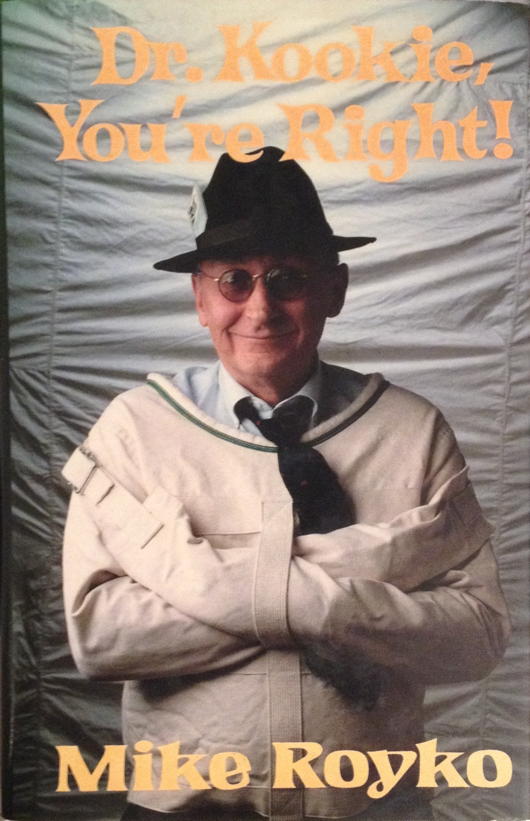 Mike Royko’s final collection of essays, from the second half of the eighties, highlights his bias as much as his great writing.
Mike Royko’s final collection of essays, from the second half of the eighties, highlights his bias as much as his great writing.
- World Chancelleries
-
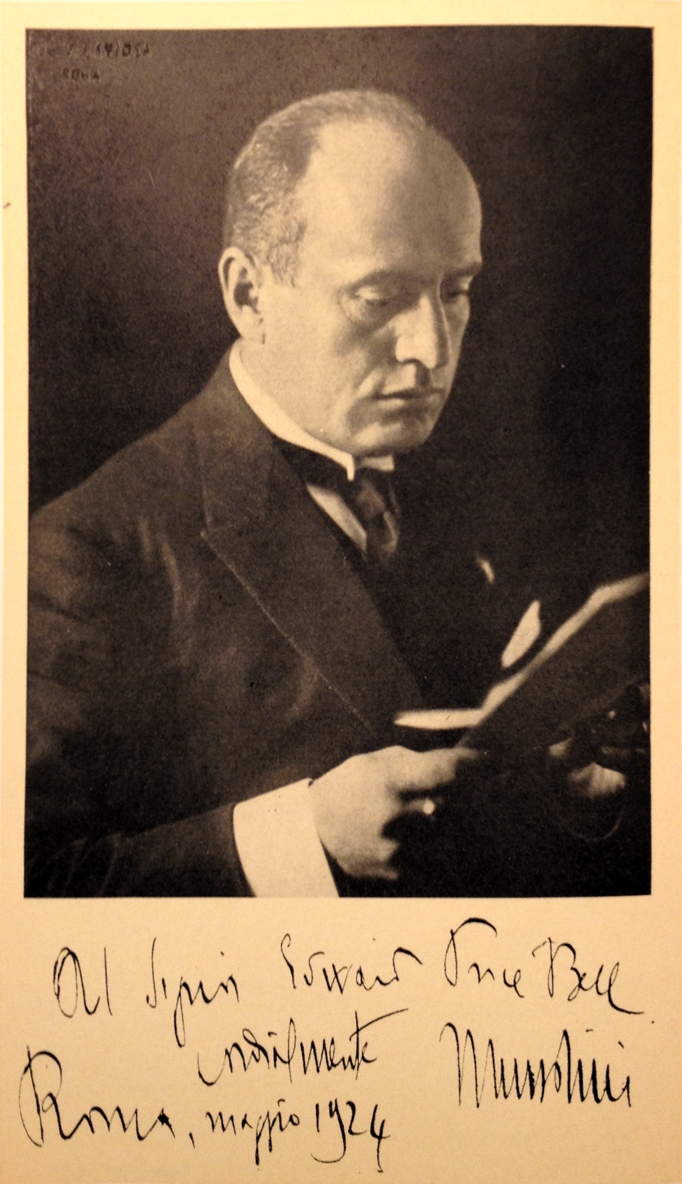 Compiled shortly after the devastation of World War One, World Chancelleries is a plea for peace at any cost. It also sheds light on pre-Second World War viewpoints of progressive outlets like the Chicago Daily News.
Compiled shortly after the devastation of World War One, World Chancelleries is a plea for peace at any cost. It also sheds light on pre-Second World War viewpoints of progressive outlets like the Chicago Daily News.
- Liberal Fascism
-
 The story of how the National Socialist German Workers Party and the fascist government takeover of businesses became defined as a conservative movement by socialists and leftists who believe the government should control businesses.
The story of how the National Socialist German Workers Party and the fascist government takeover of businesses became defined as a conservative movement by socialists and leftists who believe the government should control businesses.
- The Elements of Journalism
-
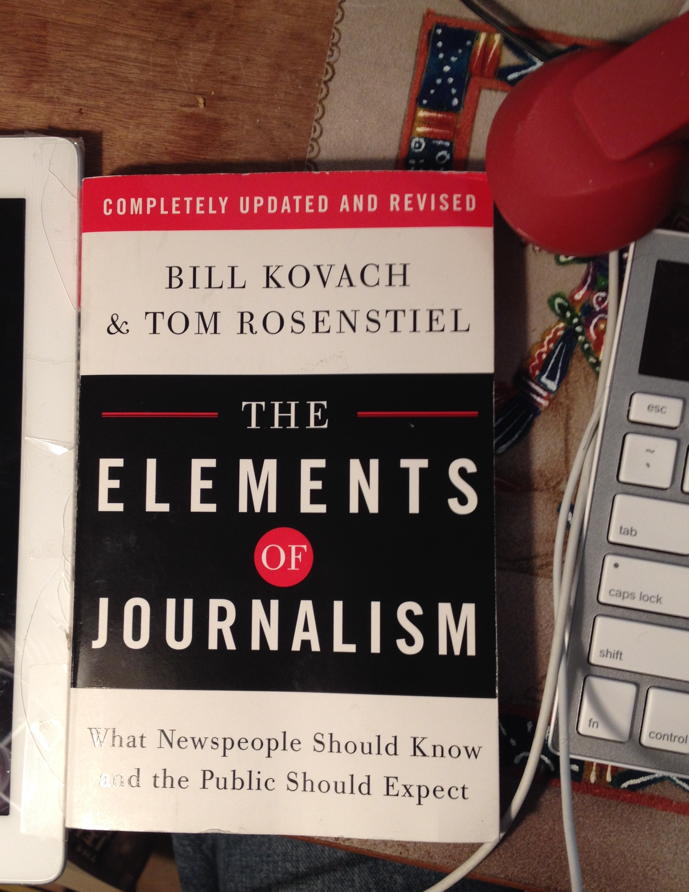 Now that the Internet empowers readers to check the veracity of news reports, journalists need to come up with more and better justifications for their bias.
Now that the Internet empowers readers to check the veracity of news reports, journalists need to come up with more and better justifications for their bias.
- Letters to a Young Journalist
-
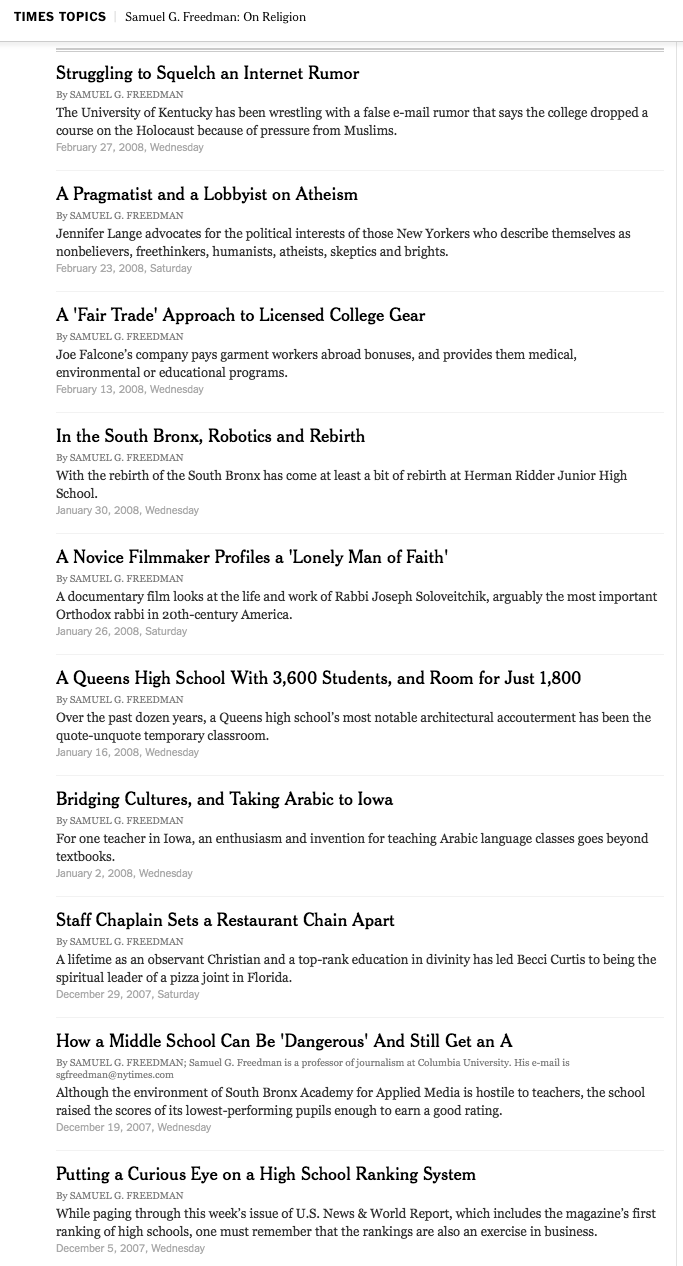 This pocket hardcover is ostensibly a series of letters to a young, but unnamed, journalist. Sort of an anonymous anti-source. Which makes sense, because Freedman is a very conflicted journalist.
This pocket hardcover is ostensibly a series of letters to a young, but unnamed, journalist. Sort of an anonymous anti-source. Which makes sense, because Freedman is a very conflicted journalist.
- Inside the Beltway: A Guide to Washington Reporting
-
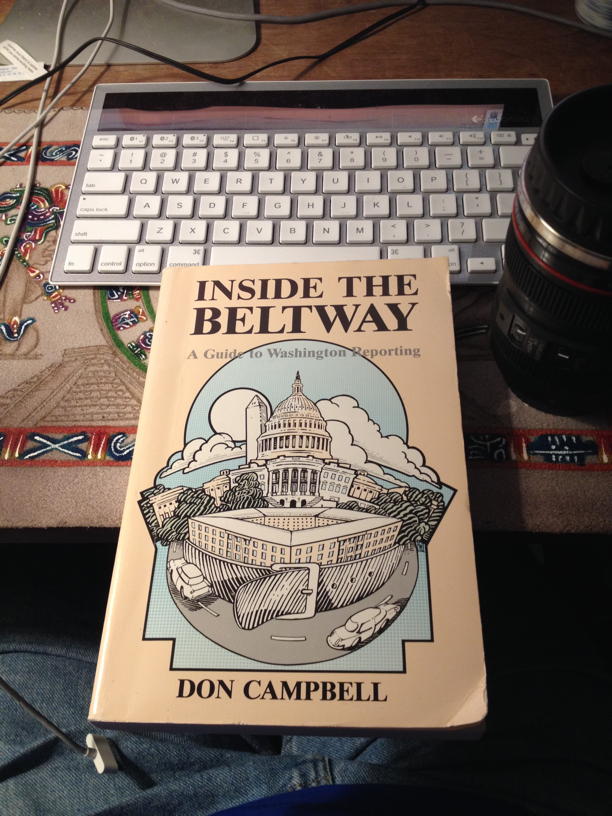 Don Campbell’s guide to the craft that is reporting in Washington, DC.
Don Campbell’s guide to the craft that is reporting in Washington, DC.
- The Vintage Mencken
- There is no need to write an introduction to my latest satire. Alistair Cooke has already written it, albeit about H.L. Mencken instead of my own Stephen Price Blair. It is written in exactly the same pretentious style, both praising and insulting the subject, that is required of a Musketeers parody.
- Amusing Ourselves to Death: Public Discourse in the Age of Show Business
-
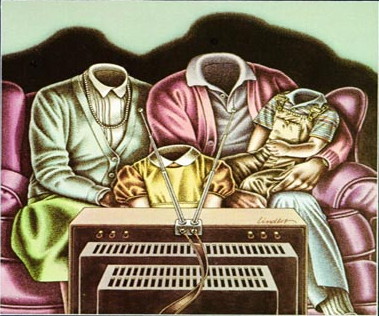 Amusing Ourselves to Death is a disjointed effort to prove that the speed of modern communications is killing us, but it ignores basic features of modern communications, such as the ability of both sides to respond; and to the extent that modern communications empowers the individual he sees that as an evil, preferring the bundling of individuals by self-appointed elites as in the age of Tammany Hall.
Amusing Ourselves to Death is a disjointed effort to prove that the speed of modern communications is killing us, but it ignores basic features of modern communications, such as the ability of both sides to respond; and to the extent that modern communications empowers the individual he sees that as an evil, preferring the bundling of individuals by self-appointed elites as in the age of Tammany Hall.
- Deadlines & Monkeyshines: The Fabled World of Chicago Journalism
-
 The past is a dark place to look into; despite all of the paeans to a golden age of journalism, John J. McPhaul describes a world very much like our own, but without the Internet to shine a light on journalism’s monkeyshines.
The past is a dark place to look into; despite all of the paeans to a golden age of journalism, John J. McPhaul describes a world very much like our own, but without the Internet to shine a light on journalism’s monkeyshines.
- A Matter of Opinion
-
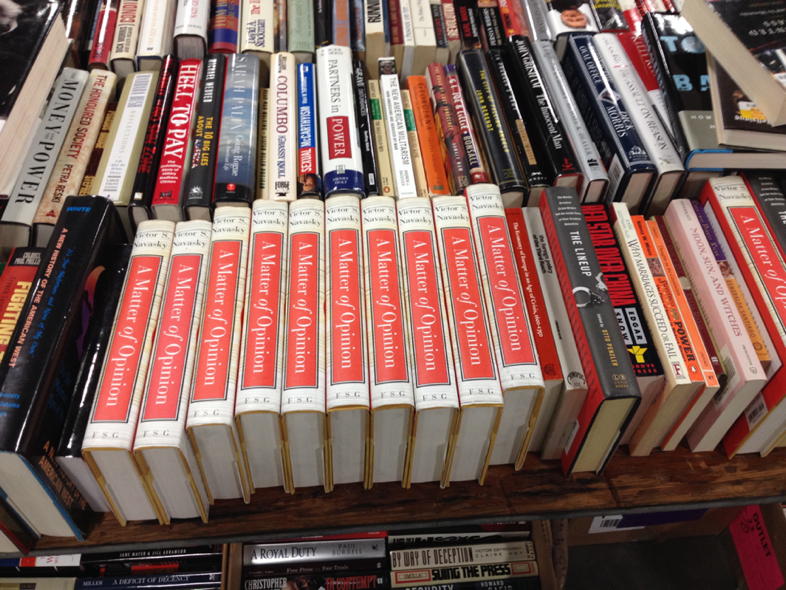 “Lord, grant me socialism… but not yet.”
“Lord, grant me socialism… but not yet.”
- Kolchak: The Night Stalker (TV Series)
- Whistling his way into the office, alone, late at night, he tosses his straw hat so nonchalantly it goes into the wastebasket, starts typing a story—a scoop! A conspiracy so dark, no one can tell it but him, the intrepid, insightful big-city journalist.
- Parliament of Whores
- Parliament of Whores is perhaps the best introduction to Washington, DC politics that I’ve seen. And it’s funny as hell to boot.
- No One Left to Lie To
- Clinton’s problems are, in Hitchens’s telling, because he was a conservative. A provincial conservative, the worst kind. He’s just not smart like Hitchens. Which is undoubtedly true, but being smart doesn’t make leftist policies any more sane.
- An Old French expletive and The Three Musketeers
-
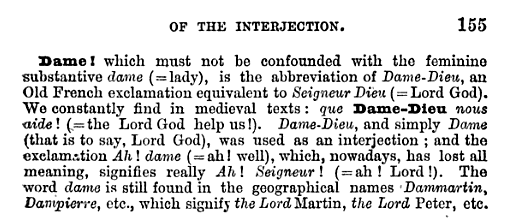 In both versions of Dumas’s Three Musketeers that I have access to, the translators chose to give up and not translate one word due to its total incomprehensibility.
In both versions of Dumas’s Three Musketeers that I have access to, the translators chose to give up and not translate one word due to its total incomprehensibility.
- The Secret Knowledge
-
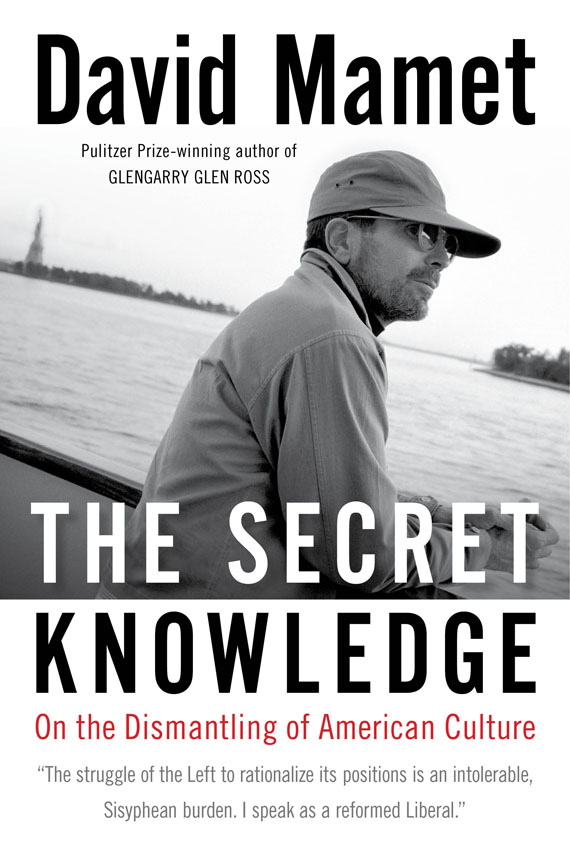 Subtitled “On the Dismantling of American Culture”, this is David Mamet’s acceptance of hard-earned wisdom, and his argument in favor of the rest of us accepting it as well.
Subtitled “On the Dismantling of American Culture”, this is David Mamet’s acceptance of hard-earned wisdom, and his argument in favor of the rest of us accepting it as well.
- Front Row at the White House
-
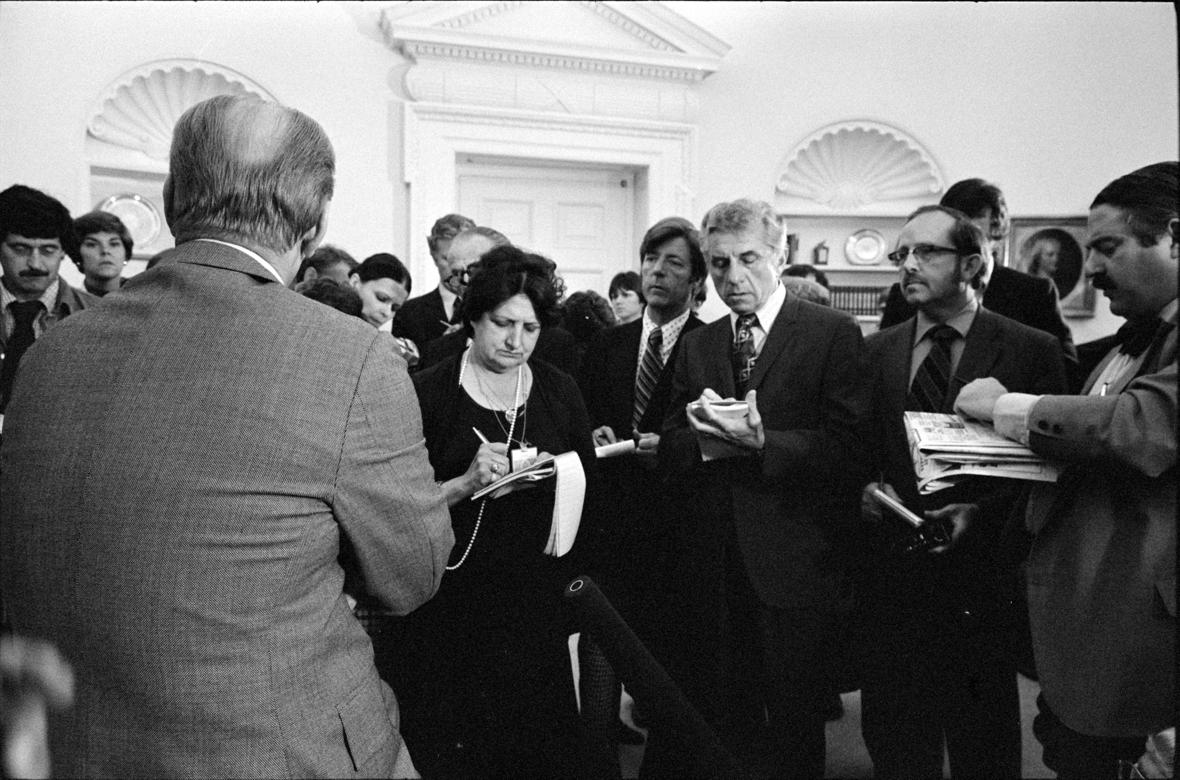 Helen Thomas’s autobiography is a testament to a life unexamined and a world of inconsequence. Nothing is connected; there is only news.
Helen Thomas’s autobiography is a testament to a life unexamined and a world of inconsequence. Nothing is connected; there is only news.
- A Reporter’s Life
- Walter Cronkite’s autobiography is an odd beast. He seems to have little introspection; his stories read like urban legends. On the other hand, he’s lived through some amazing times, and has seen dominance in journalism move from newspaper to radio to television.
- The Prince of Darkness
-
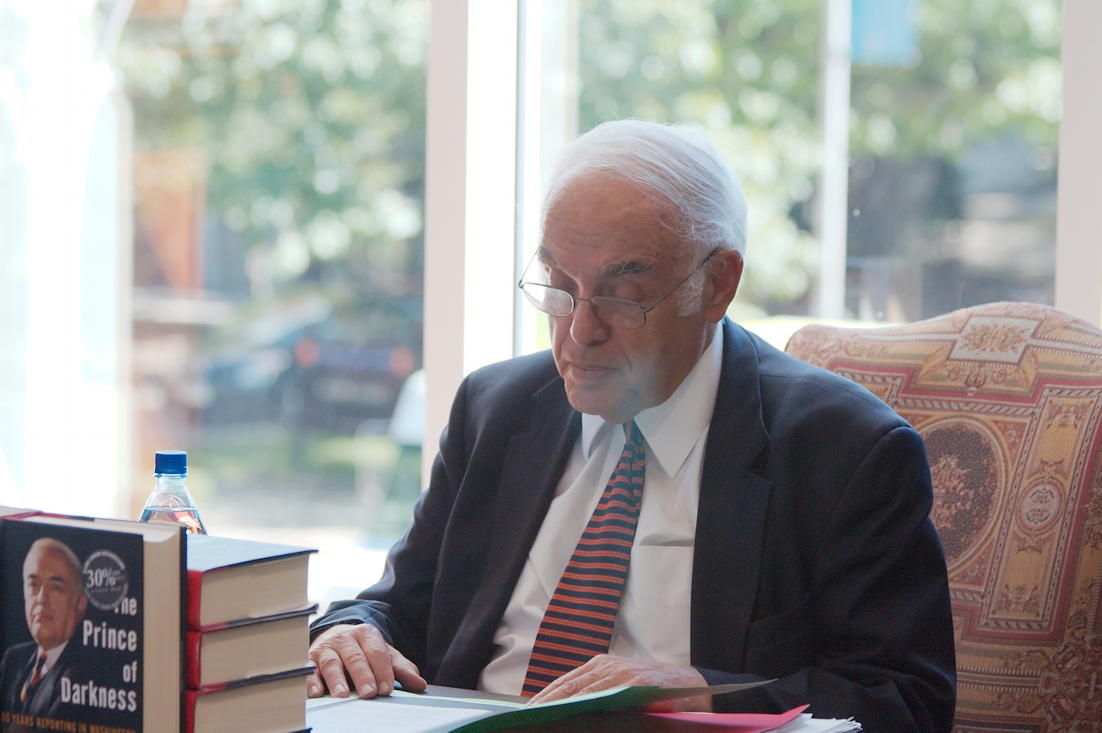 Robert Novak’s memoir covers his life from 1957 working for the Associated Press, through his 30-year partnership with Rowly Evans, and is bookended by the Plame affair. It’s very engaging, making you feel as much an insider as he dared as a conservative writer in a congenitally liberal town.
Robert Novak’s memoir covers his life from 1957 working for the Associated Press, through his 30-year partnership with Rowly Evans, and is bookended by the Plame affair. It’s very engaging, making you feel as much an insider as he dared as a conservative writer in a congenitally liberal town.
- The Vision of the Anointed
- Would you believe that good intentions can defy the law of gravity? If not, you wouldn’t make a good politician in today’s America.
- American Rhapsody
-
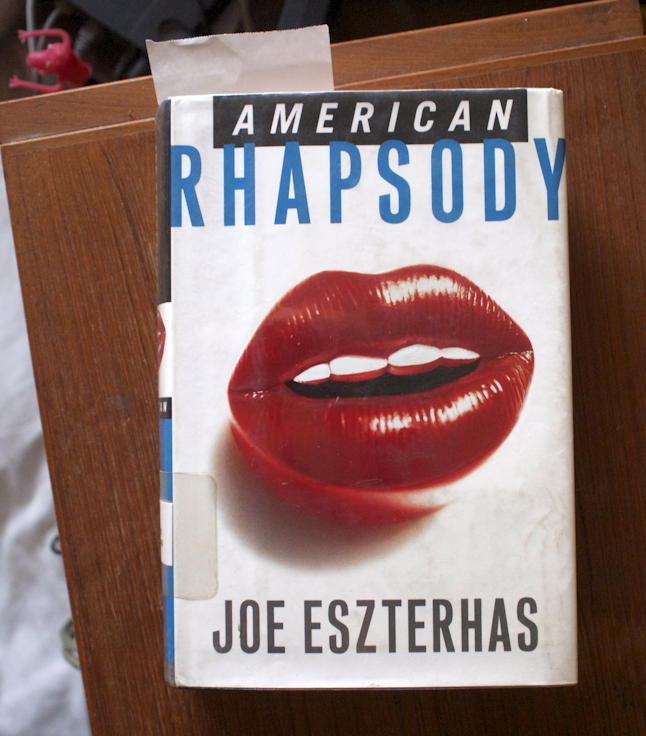 A fascinating exercise in self-deception and Hollywood bias.
A fascinating exercise in self-deception and Hollywood bias.
- Bias: A CBS Insider Exposes How the Media Distort the News
-
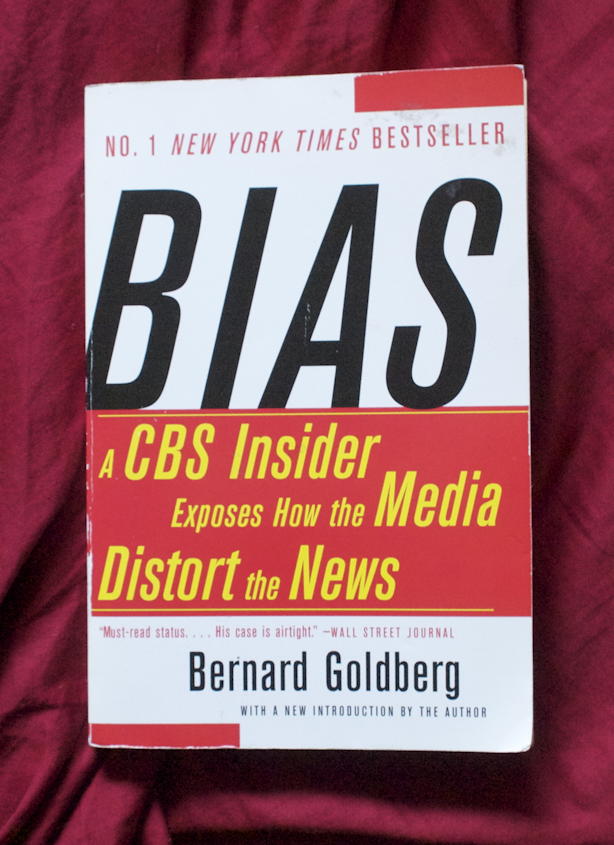 Bernard Goldberg talks out of school about how alien the average person seems to the media elite, and tries to help us see why broadcast journalists sometimes appear to be from another planet.
Bernard Goldberg talks out of school about how alien the average person seems to the media elite, and tries to help us see why broadcast journalists sometimes appear to be from another planet.
- The Powers That Be
-
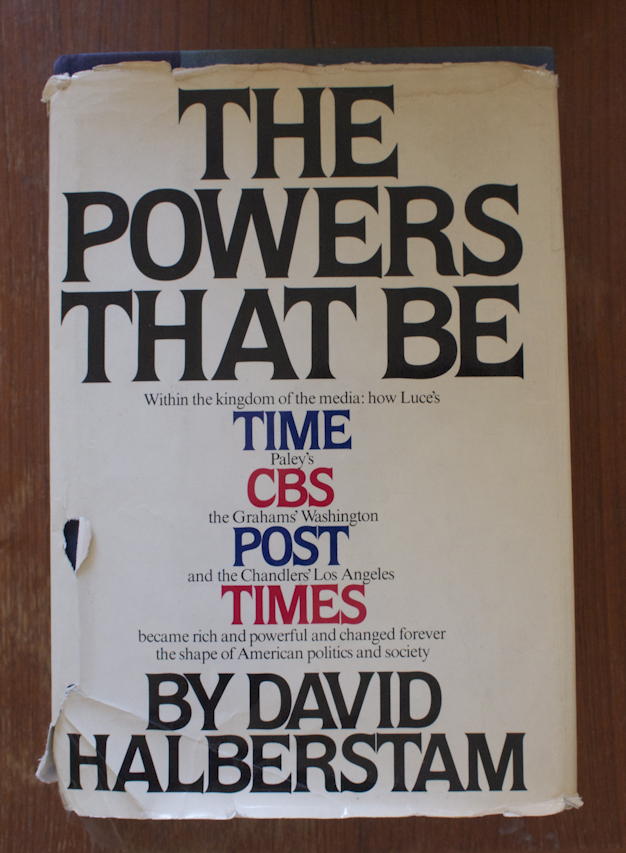 David Halberstam’s tome about the growth of media power is repetitive, burdensome, it circles itself like an overweight prizefighter attempting to gain the advantage of the mirror, but like the aging boxer is filled with anecdotal glory.
David Halberstam’s tome about the growth of media power is repetitive, burdensome, it circles itself like an overweight prizefighter attempting to gain the advantage of the mirror, but like the aging boxer is filled with anecdotal glory.
- Yes Minister: The Complete Collection
-
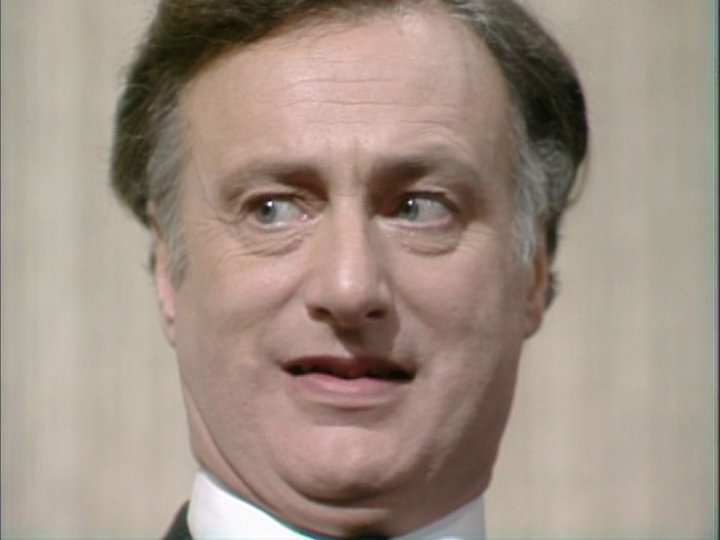 If I had to subtitle this eighties political sitcom, I’d call it “Screwtape Politics”.
If I had to subtitle this eighties political sitcom, I’d call it “Screwtape Politics”.
- The Palace Guard
- This is an amazing account of the rise of Nixon’s White House staff: Mitchell, Haldeman, and Erlichman. It’s also interesting seeing clear media bias, from one of the media’s then-leading lights, over thirty years after he wrote it, and eight years after his own self-made demise.
- Throw Them All Out
-
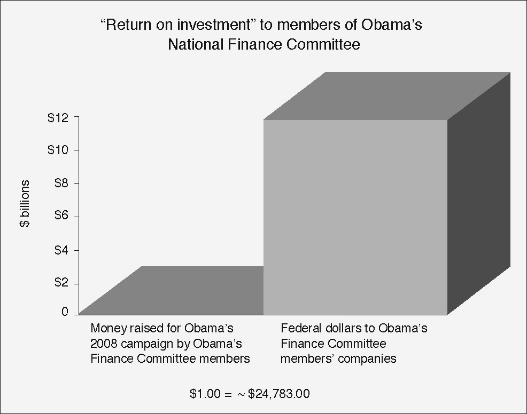 IPO nowadays stands for Invest in Politicians Often. Investing in politicians brings huge returns.
IPO nowadays stands for Invest in Politicians Often. Investing in politicians brings huge returns.
- Reading after midnight
-
 Nothing keens my writing axe more than knowing I’m about to read it out loud to a bunch of other writers. That one of them is Mark Clements definitely helps. And it is especially true when I’m doing something odd like tDoPB. Which I’m keeping a bit of a secret right now because I’m still not sure I’m going to be able to pull it off.
Nothing keens my writing axe more than knowing I’m about to read it out loud to a bunch of other writers. That one of them is Mark Clements definitely helps. And it is especially true when I’m doing something odd like tDoPB. Which I’m keeping a bit of a secret right now because I’m still not sure I’m going to be able to pull it off.
- The Legend of the Nightriders
-
 Hundreds of people dead, and almost no records, in rural Louisiana following the Civil War. Truth? Legend? Or something in between? Jack Peebles takes newly-discovered newspaper articles and shows us the possibility of truth in old stories about the Harrisonburg Road.
Hundreds of people dead, and almost no records, in rural Louisiana following the Civil War. Truth? Legend? Or something in between? Jack Peebles takes newly-discovered newspaper articles and shows us the possibility of truth in old stories about the Harrisonburg Road.
- Taking Heat
-
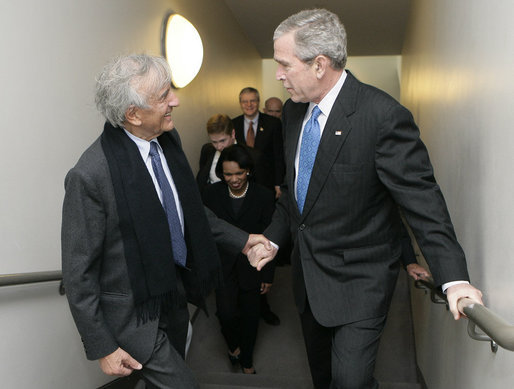 This is a very interesting look at the biases of the top echelons of the media, from a pre-2008 perspective.
This is a very interesting look at the biases of the top echelons of the media, from a pre-2008 perspective.
- The Dream of Poor Bazin (Official Site)
-
 The Dream of Poor Bazin: A Novel of adventure journalism in Washington, DC.
The Dream of Poor Bazin: A Novel of adventure journalism in Washington, DC.
- All Too Human
- George Stephanopoulos writes about his time in the Clinton campaign and White House. He also talks about his hero worship and subsequent disillusionment.
- A fragile alliance
- The tea party and the Republican party alliance is a fragile one: it requires support on both sides. The media and tea partiers recognize this. Republican party leadership needs to figure it out yesterday.
- Fit to Print: A.M. Rosenthal and His Times
- Abe Rosenthal ran the New York Times from the late sixties to the mid eighties. He made lots of enemies, took sides in New York’s elections, and treated people as if only he were real. But he also turned the Times into a more profitable entity that reported news instead of press releases and stories instead of raw data.
- Advice to Sarah Palin From the Know-It-Alls
- A member of the “Know-It-All Syndicate” offers advice to Sarah Palin on how to step down from politics and return to the kitchen.
- Losing America
- If someone were to tell you they were reading a book subtitled “Confronting a reckless and arrogant presidency” you’d probably think it was written by a right-winger, rather than a short-sighted beltway insider who can’t see out of the beltway box to save his own reputation.
- The Blog of War
- Great collection of Iraq and Afghanistan-related milblog posts. The Blog of War covers every war from the perspective of the individuals who take part: friends, spouses, and the soldiers themselves.
- Weblog killed the paperback star
- Are blogs, twitter, and other forms of mass online communication undermining the need for fiction?
- Washington Goes to War
- The Washington Metropolitan area’s population increased by over 50% between 1930 and 1941. Another 70,000 arrived in 1942, and 5,000 new federal workers were added every month. The reason was war, and the rumor of war. The book covers the period from 1939 to 1945, with much wandering in between. Part of it is from Brinkley’s personal memories of the period, and much more from interviews.
- Boss
- From 1955 to 1976, Richard J. Daley was the mayor of Chicago and the undisputed boss of Chicago politics. In 1971, reporter Mike Royko published a book about Daley’s rise to power and his firm grip on it. Boss is a fascinating story of the Chicago machine that still in some form exists today.
- The Prince
- Machiavelli’s “The Prince” is an odd bit of ephemera from the sixteenth century. It purports to teach a newly-made prince how to maintain his principality.
- All the President’s Men
-
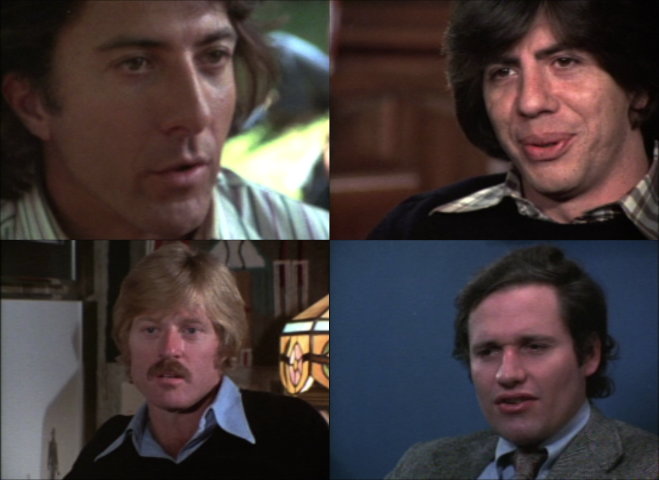 Probably one of the most influential events in journalism history made into one of the best films of the seventies.
Probably one of the most influential events in journalism history made into one of the best films of the seventies.
- Fighting for the American Dream
- Joe the Plumber writes about his experiences at the center of one of the most vicious smear campaigns in recent memory.
- New Grub Street
-
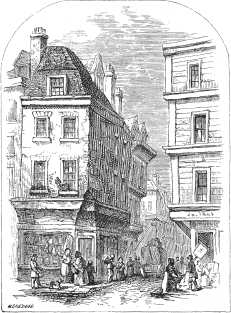 New Grub Street is a fascinating novel about the early days of modern literary publishing. Part satire, part drama, it could easily be transported, issues intact, from its 19th century to our 21st century.
New Grub Street is a fascinating novel about the early days of modern literary publishing. Part satire, part drama, it could easily be transported, issues intact, from its 19th century to our 21st century.
- Shattered Glass, Shattered Illusions
- Great movie, great commentary on the DVD with directory Billy and New Republic editor Chuck Lane.
- This Is Not An Assault
- Liberals who fear a police state will have their fears confirmed, and Conservatives who believe in strong law enforcement should receive a wake up call from “This Is Not An Assault”.
- Mike Royko’s Opinions
- Mike Royko would have been almost gonzo if he’d been more Libertarian. Certainly, he was growing that way before he died, especially with his views on drugs and modifying his stand against gun control.
 A great journalistic adventure in the style of Dumas or Waugh, four hard-drinking reporters taking on the corruption, toadying, and even murder in America’s beltway.
A great journalistic adventure in the style of Dumas or Waugh, four hard-drinking reporters taking on the corruption, toadying, and even murder in America’s beltway. Thomas Sowell details the verbal virtuosity by which the left tries to avoid empirical evidence.
Thomas Sowell details the verbal virtuosity by which the left tries to avoid empirical evidence. In 1935, Evelyn Waugh traveled to Abyssinia to cover the Second Italo-Abyssinian War for the Daily Mail. He found it absurd enough, up to a point, to be the basis for a satire and combined some of his colleagues into William Boot of the Beast.
In 1935, Evelyn Waugh traveled to Abyssinia to cover the Second Italo-Abyssinian War for the Daily Mail. He found it absurd enough, up to a point, to be the basis for a satire and combined some of his colleagues into William Boot of the Beast. This book is a great collection of war reporting anecdotes from the Crimean War up to Vietnam. It also attempts to be an analysis, and pretty much fails to not only come to any conclusion, but to decide what its goals ought to be.
This book is a great collection of war reporting anecdotes from the Crimean War up to Vietnam. It also attempts to be an analysis, and pretty much fails to not only come to any conclusion, but to decide what its goals ought to be. Ward Just’s story of three generations of Washington power brokers unknown by pretty much everyone outside of DC.
Ward Just’s story of three generations of Washington power brokers unknown by pretty much everyone outside of DC. This Senatorial procedural could be straight from Dumas, and the themes hidden in the action are timeless.
This Senatorial procedural could be straight from Dumas, and the themes hidden in the action are timeless. Sad, autumnal reminiscences of power.
Sad, autumnal reminiscences of power. This collection of Royko columns is basically the leftovers from the previous collection, from the sixties on up, and worth getting if you’re a Royko fan.
This collection of Royko columns is basically the leftovers from the previous collection, from the sixties on up, and worth getting if you’re a Royko fan. What’s old is new again: unwilling to learn the lessons of the past, those who wish to rule are returning to socialism and cronyism as the only two solutions for all the problems government creates. That is, more government to fix bad government.
What’s old is new again: unwilling to learn the lessons of the past, those who wish to rule are returning to socialism and cronyism as the only two solutions for all the problems government creates. That is, more government to fix bad government. When did America forget that it’s America?
When did America forget that it’s America? A journalism noir starring Jimmy Stewart as the crusading reporter who frees an innocemnt man while arguing with his editor, smoking, drinking, and walking the streets of Chicago.
A journalism noir starring Jimmy Stewart as the crusading reporter who frees an innocemnt man while arguing with his editor, smoking, drinking, and walking the streets of Chicago. If you’re looking for a grand overview of Mike Royko’s essays, this is a great place to start. It includes his very first essay from September 6, 1963, and provides some of his best works from the sixties, seventies, eighties, and nineties, ending with his very last column from March 21, 1997, which was, fittingly, about both the Cubs and Sam Sianis of the Billy Goat Tavern.
If you’re looking for a grand overview of Mike Royko’s essays, this is a great place to start. It includes his very first essay from September 6, 1963, and provides some of his best works from the sixties, seventies, eighties, and nineties, ending with his very last column from March 21, 1997, which was, fittingly, about both the Cubs and Sam Sianis of the Billy Goat Tavern. Jonah Goldberg takes down political clichés, such as “violence never solves anything” and “I don’t believe in labels”.
Jonah Goldberg takes down political clichés, such as “violence never solves anything” and “I don’t believe in labels”. Supposedly written because Robert Redford wanted to base a movie on the book, this is a great memoir of two journalists wondering what the hell was up after a failed burglary on an office in the Watergate Building.
Supposedly written because Robert Redford wanted to base a movie on the book, this is a great memoir of two journalists wondering what the hell was up after a failed burglary on an office in the Watergate Building. What is satire if it isn’t about current, hotly-debated events and puncturing overblown narratives?
What is satire if it isn’t about current, hotly-debated events and puncturing overblown narratives? Mike Royko’s final collection of essays, from the second half of the eighties, highlights his bias as much as his great writing.
Mike Royko’s final collection of essays, from the second half of the eighties, highlights his bias as much as his great writing. Compiled shortly after the devastation of World War One, World Chancelleries is a plea for peace at any cost. It also sheds light on pre-Second World War viewpoints of progressive outlets like the Chicago Daily News.
Compiled shortly after the devastation of World War One, World Chancelleries is a plea for peace at any cost. It also sheds light on pre-Second World War viewpoints of progressive outlets like the Chicago Daily News. The story of how the National Socialist German Workers Party and the fascist government takeover of businesses became defined as a conservative movement by socialists and leftists who believe the government should control businesses.
The story of how the National Socialist German Workers Party and the fascist government takeover of businesses became defined as a conservative movement by socialists and leftists who believe the government should control businesses. Now that the Internet empowers readers to check the veracity of news reports, journalists need to come up with more and better justifications for their bias.
Now that the Internet empowers readers to check the veracity of news reports, journalists need to come up with more and better justifications for their bias. This pocket hardcover is ostensibly a series of letters to a young, but unnamed, journalist. Sort of an anonymous anti-source. Which makes sense, because Freedman is a very conflicted journalist.
This pocket hardcover is ostensibly a series of letters to a young, but unnamed, journalist. Sort of an anonymous anti-source. Which makes sense, because Freedman is a very conflicted journalist. Don Campbell’s guide to the craft that is reporting in Washington, DC.
Don Campbell’s guide to the craft that is reporting in Washington, DC. Amusing Ourselves to Death is a disjointed effort to prove that the speed of modern communications is killing us, but it ignores basic features of modern communications, such as the ability of both sides to respond; and to the extent that modern communications empowers the individual he sees that as an evil, preferring the bundling of individuals by self-appointed elites as in the age of Tammany Hall.
Amusing Ourselves to Death is a disjointed effort to prove that the speed of modern communications is killing us, but it ignores basic features of modern communications, such as the ability of both sides to respond; and to the extent that modern communications empowers the individual he sees that as an evil, preferring the bundling of individuals by self-appointed elites as in the age of Tammany Hall. The past is a dark place to look into; despite all of the paeans to a golden age of journalism, John J. McPhaul describes a world very much like our own, but without the Internet to shine a light on journalism’s monkeyshines.
The past is a dark place to look into; despite all of the paeans to a golden age of journalism, John J. McPhaul describes a world very much like our own, but without the Internet to shine a light on journalism’s monkeyshines. “Lord, grant me socialism… but not yet.”
“Lord, grant me socialism… but not yet.” In both versions of Dumas’s Three Musketeers that I have access to, the translators chose to give up and not translate one word due to its total incomprehensibility.
In both versions of Dumas’s Three Musketeers that I have access to, the translators chose to give up and not translate one word due to its total incomprehensibility. Subtitled “On the Dismantling of American Culture”, this is David Mamet’s acceptance of hard-earned wisdom, and his argument in favor of the rest of us accepting it as well.
Subtitled “On the Dismantling of American Culture”, this is David Mamet’s acceptance of hard-earned wisdom, and his argument in favor of the rest of us accepting it as well. Helen Thomas’s autobiography is a testament to a life unexamined and a world of inconsequence. Nothing is connected; there is only news.
Helen Thomas’s autobiography is a testament to a life unexamined and a world of inconsequence. Nothing is connected; there is only news. Robert Novak’s memoir covers his life from 1957 working for the Associated Press, through his 30-year partnership with Rowly Evans, and is bookended by the Plame affair. It’s very engaging, making you feel as much an insider as he dared as a conservative writer in a congenitally liberal town.
Robert Novak’s memoir covers his life from 1957 working for the Associated Press, through his 30-year partnership with Rowly Evans, and is bookended by the Plame affair. It’s very engaging, making you feel as much an insider as he dared as a conservative writer in a congenitally liberal town. A fascinating exercise in self-deception and Hollywood bias.
A fascinating exercise in self-deception and Hollywood bias. Bernard Goldberg talks out of school about how alien the average person seems to the media elite, and tries to help us see why broadcast journalists sometimes appear to be from another planet.
Bernard Goldberg talks out of school about how alien the average person seems to the media elite, and tries to help us see why broadcast journalists sometimes appear to be from another planet. David Halberstam’s tome about the growth of media power is repetitive, burdensome, it circles itself like an overweight prizefighter attempting to gain the advantage of the mirror, but like the aging boxer is filled with anecdotal glory.
David Halberstam’s tome about the growth of media power is repetitive, burdensome, it circles itself like an overweight prizefighter attempting to gain the advantage of the mirror, but like the aging boxer is filled with anecdotal glory. If I had to subtitle this eighties political sitcom, I’d call it “Screwtape Politics”.
If I had to subtitle this eighties political sitcom, I’d call it “Screwtape Politics”. IPO nowadays stands for Invest in Politicians Often. Investing in politicians brings huge returns.
IPO nowadays stands for Invest in Politicians Often. Investing in politicians brings huge returns. Nothing keens my writing axe more than knowing I’m about to read it out loud to a bunch of other writers. That one of them is Mark Clements definitely helps. And it is especially true when I’m doing something odd like tDoPB. Which I’m keeping a bit of a secret right now because I’m still not sure I’m going to be able to pull it off.
Nothing keens my writing axe more than knowing I’m about to read it out loud to a bunch of other writers. That one of them is Mark Clements definitely helps. And it is especially true when I’m doing something odd like tDoPB. Which I’m keeping a bit of a secret right now because I’m still not sure I’m going to be able to pull it off. Hundreds of people dead, and almost no records, in rural Louisiana following the Civil War. Truth? Legend? Or something in between? Jack Peebles takes newly-discovered newspaper articles and shows us the possibility of truth in old stories about the Harrisonburg Road.
Hundreds of people dead, and almost no records, in rural Louisiana following the Civil War. Truth? Legend? Or something in between? Jack Peebles takes newly-discovered newspaper articles and shows us the possibility of truth in old stories about the Harrisonburg Road. This is a very interesting look at the biases of the top echelons of the media, from a pre-2008 perspective.
This is a very interesting look at the biases of the top echelons of the media, from a pre-2008 perspective. The Dream of Poor Bazin: A Novel of adventure journalism in Washington, DC.
The Dream of Poor Bazin: A Novel of adventure journalism in Washington, DC. Probably one of the most influential events in journalism history made into one of the best films of the seventies.
Probably one of the most influential events in journalism history made into one of the best films of the seventies. New Grub Street is a fascinating novel about the early days of modern literary publishing. Part satire, part drama, it could easily be transported, issues intact, from its 19th century to our 21st century.
New Grub Street is a fascinating novel about the early days of modern literary publishing. Part satire, part drama, it could easily be transported, issues intact, from its 19th century to our 21st century.